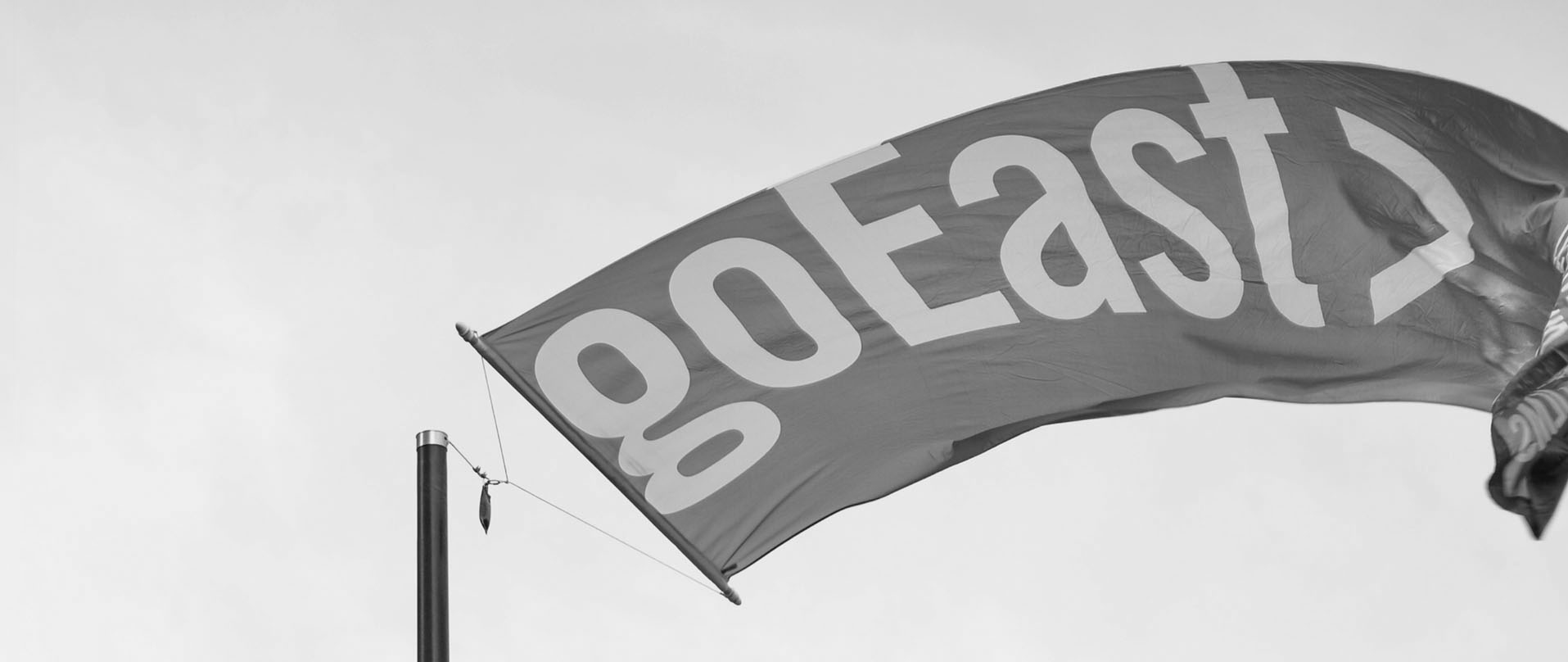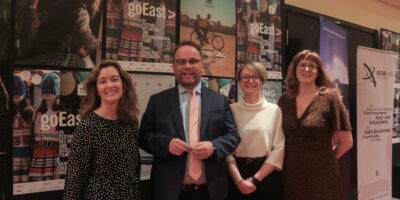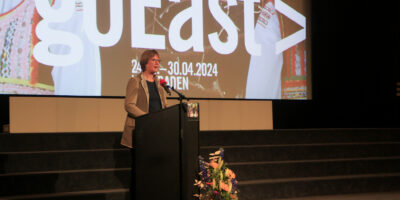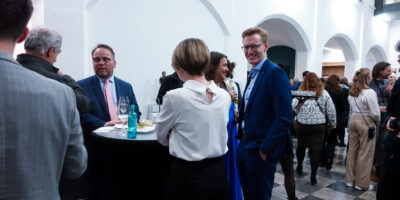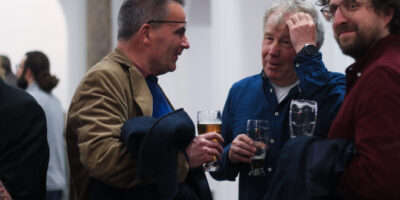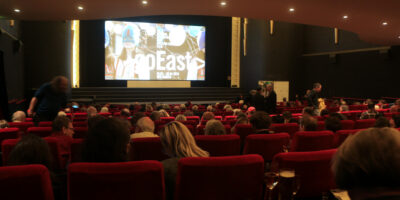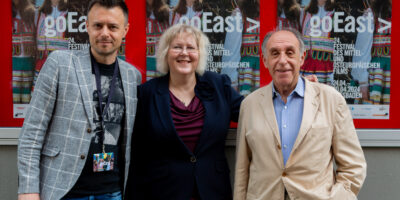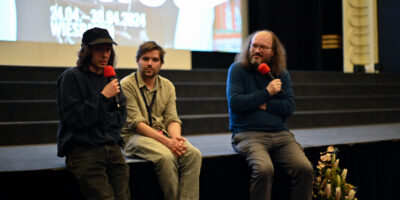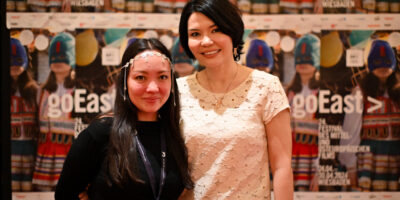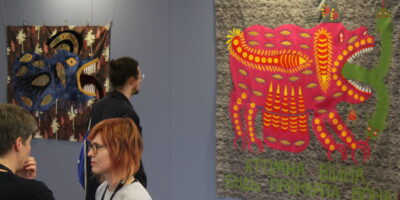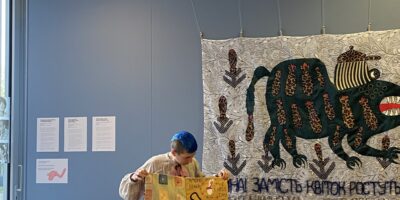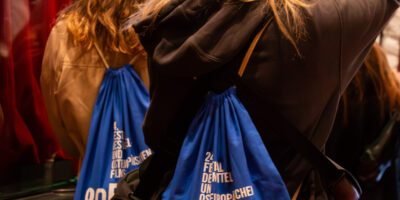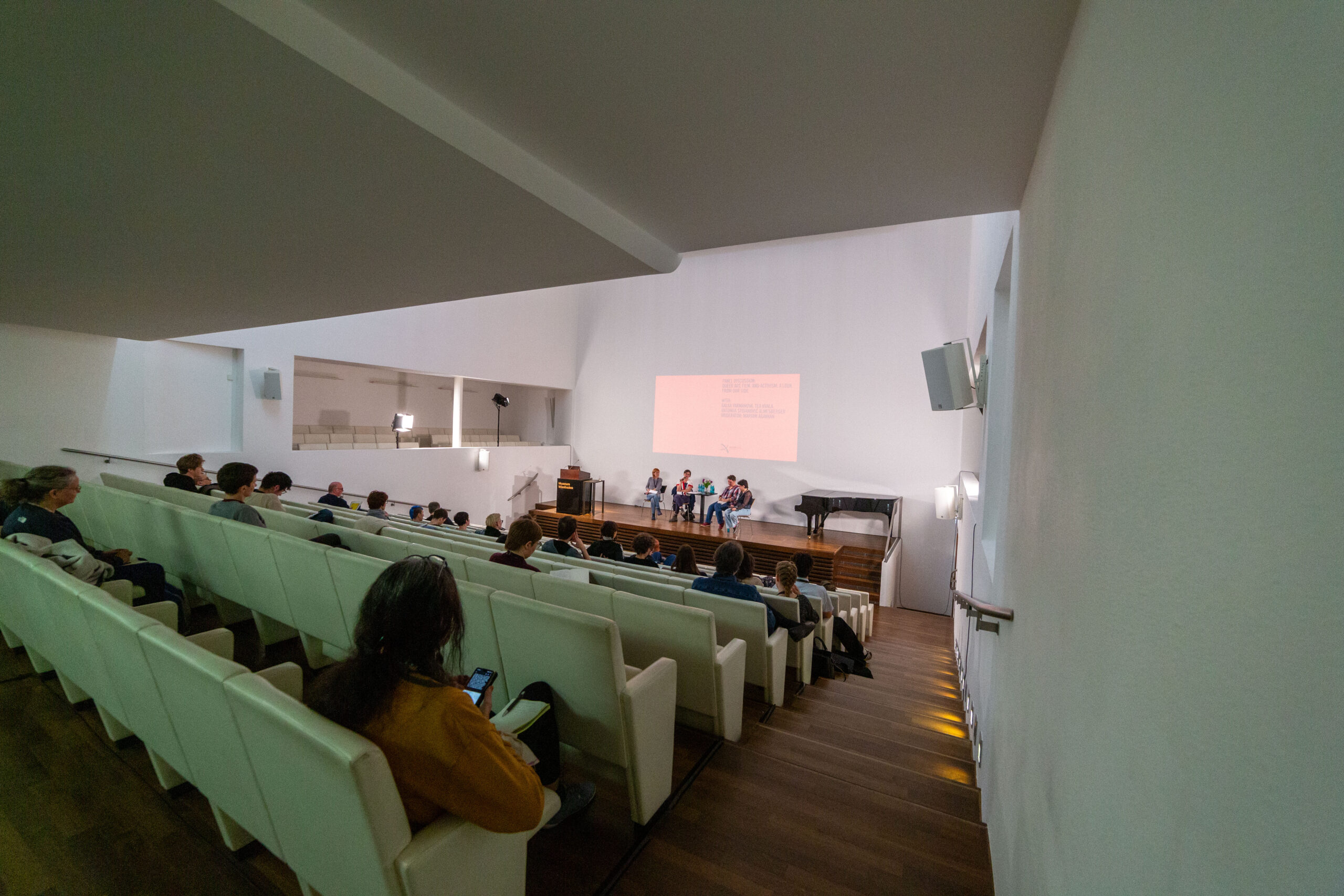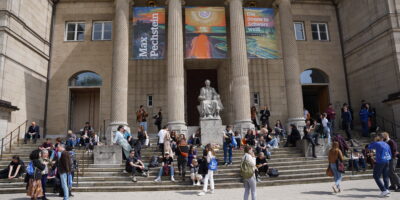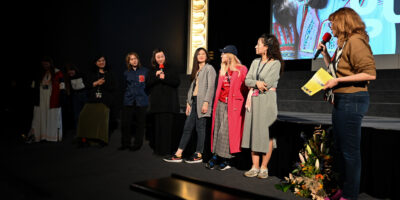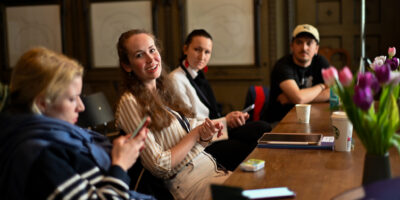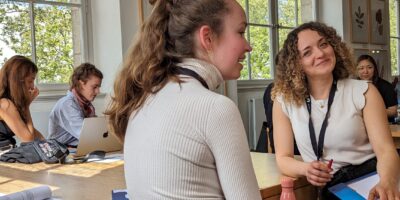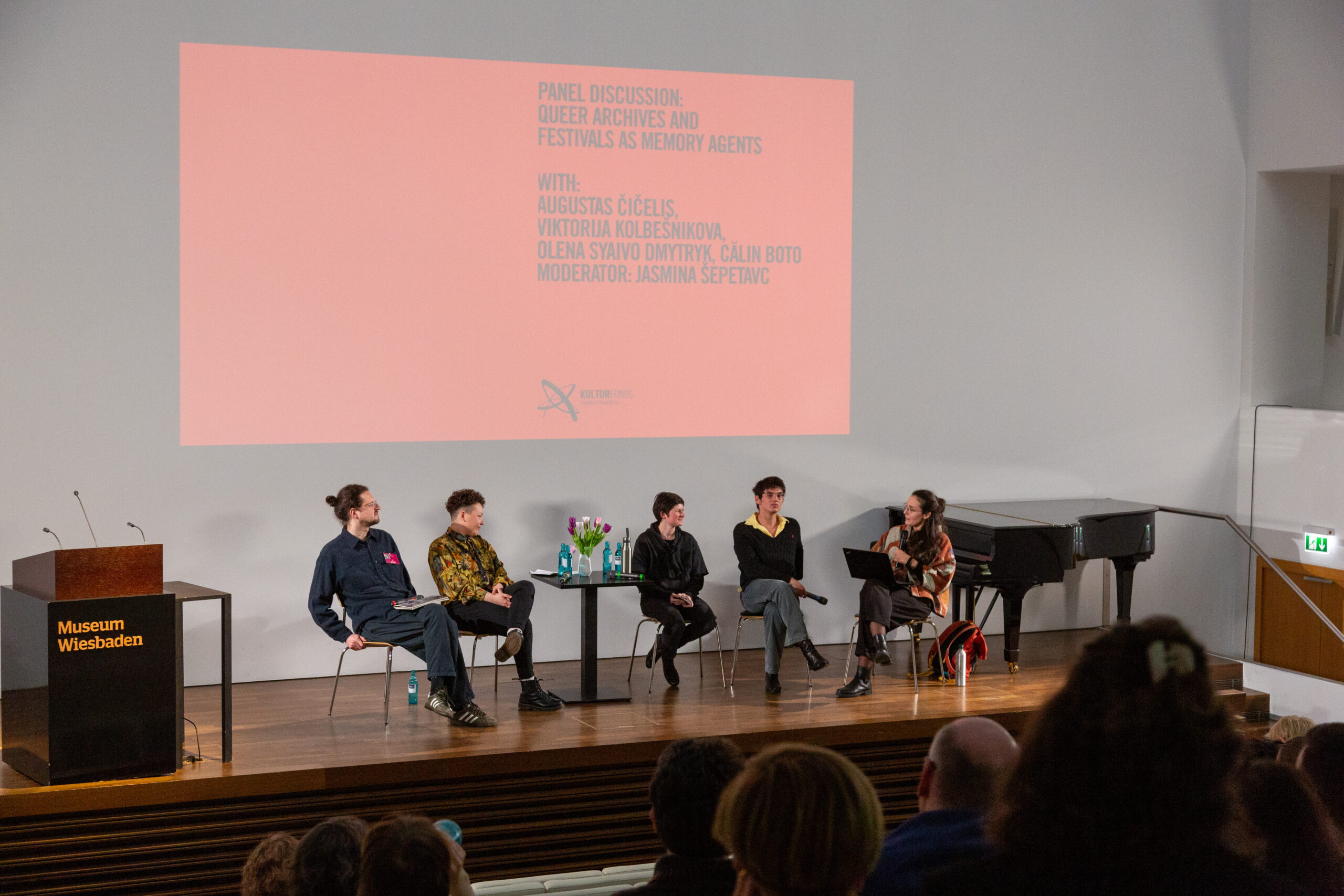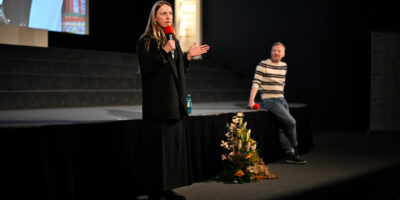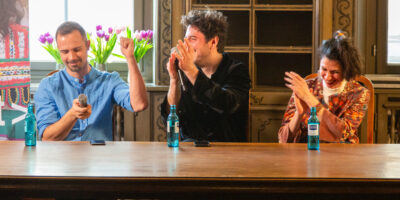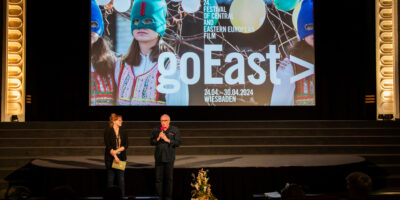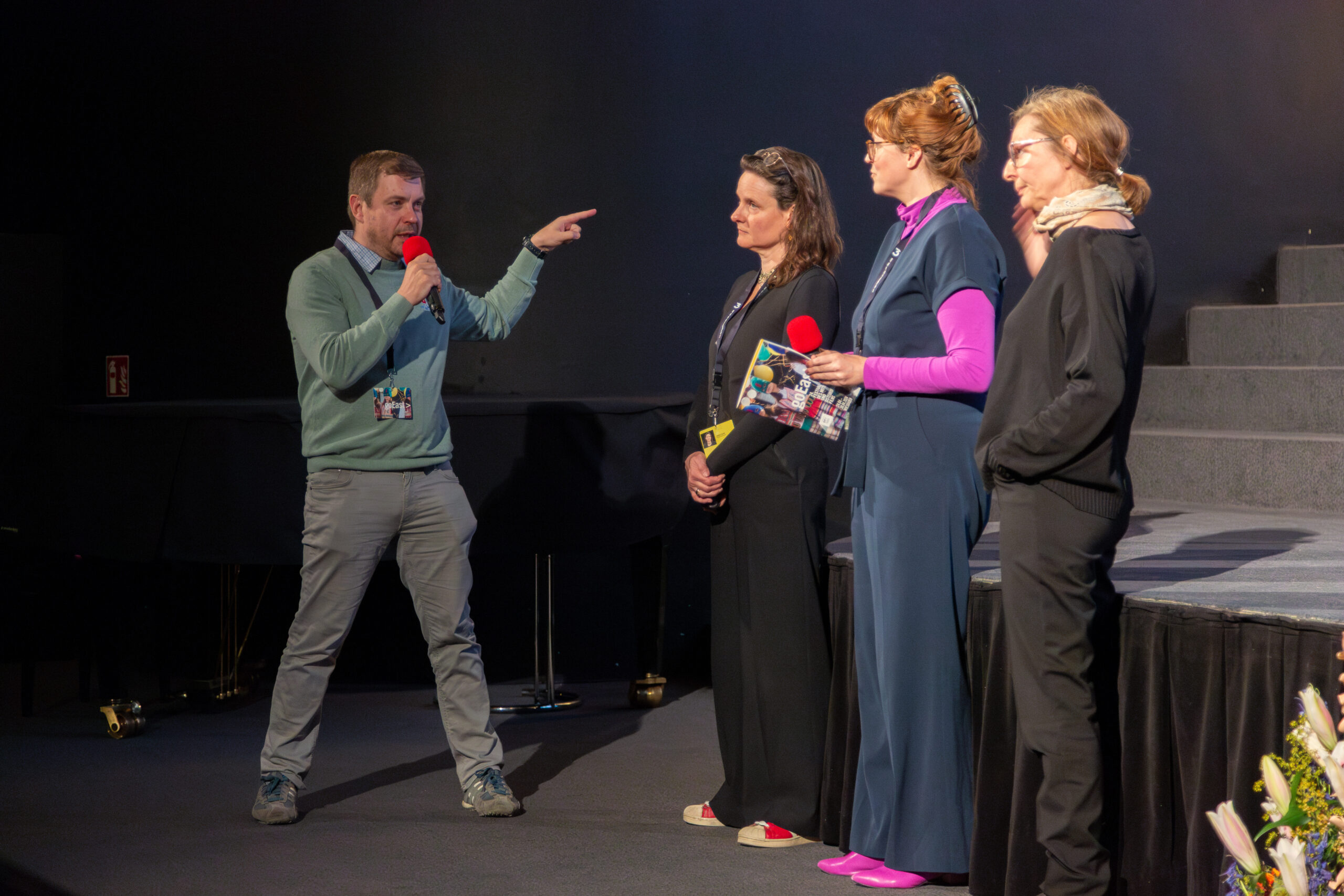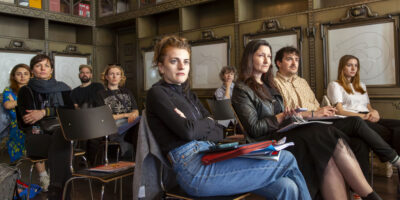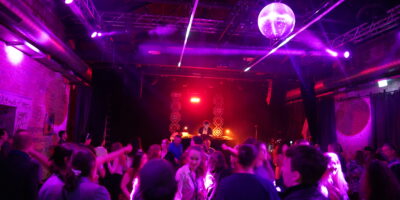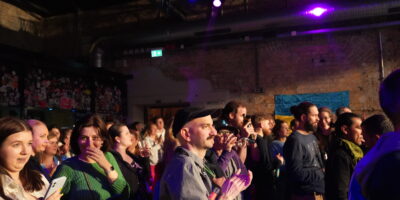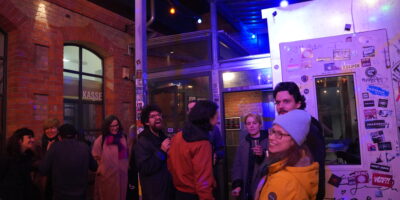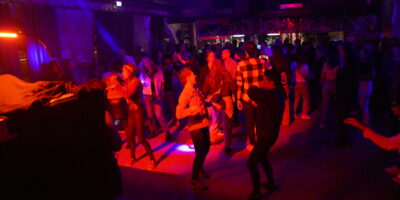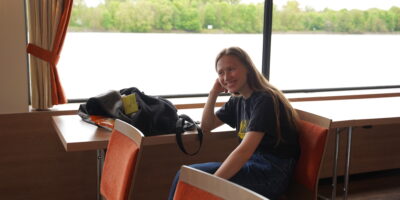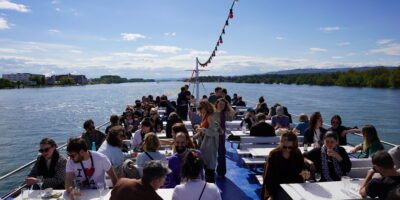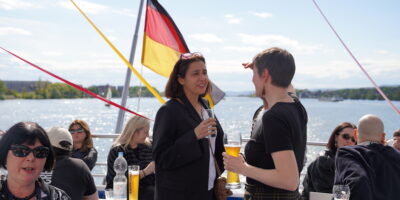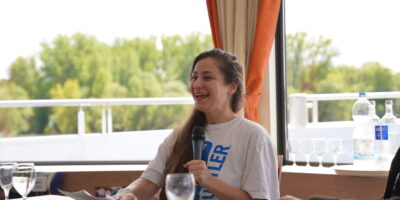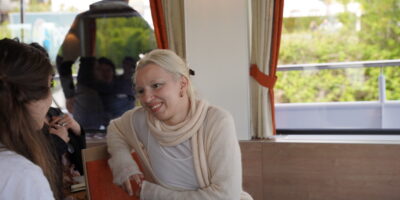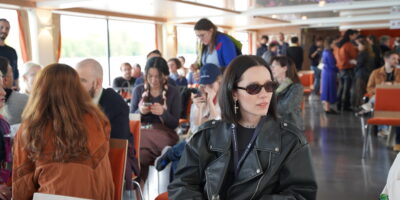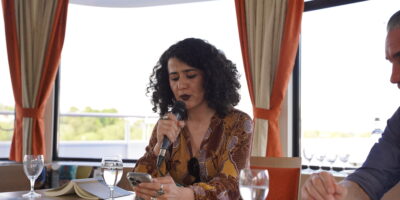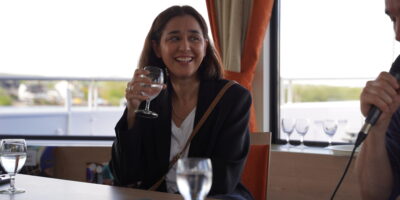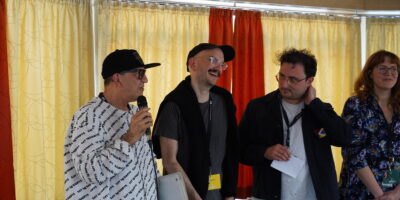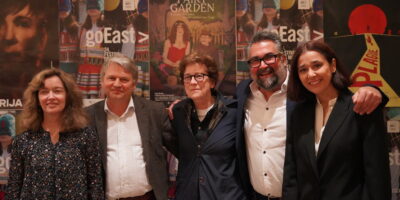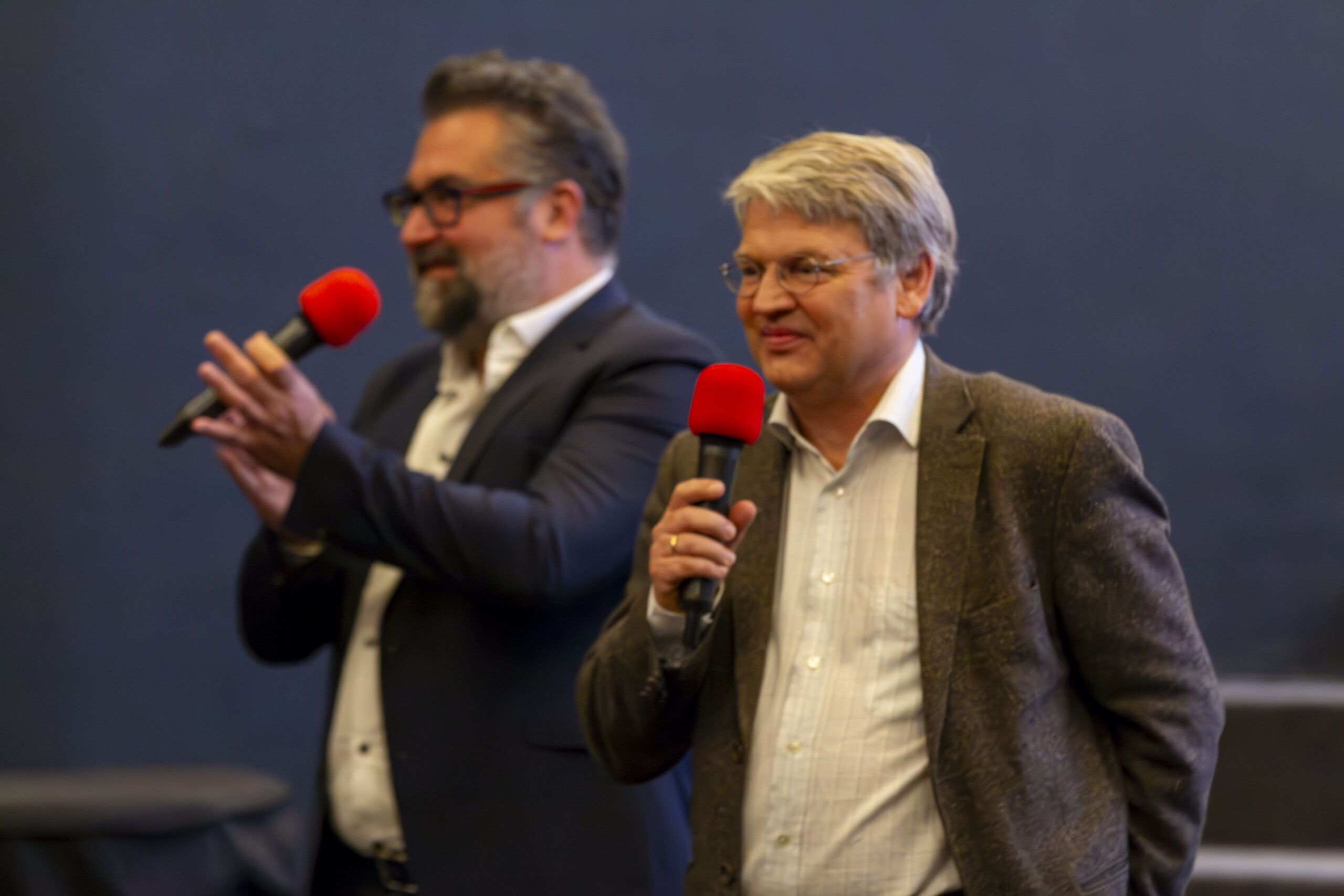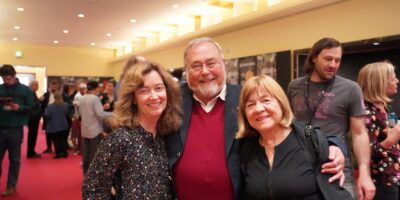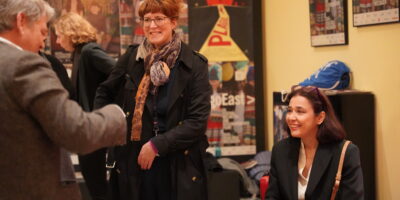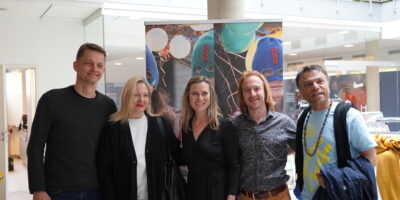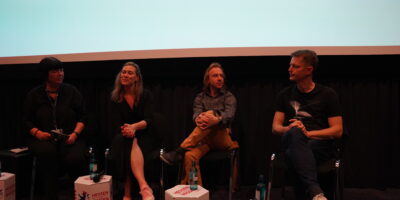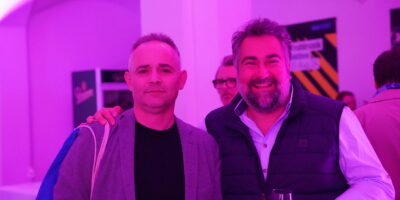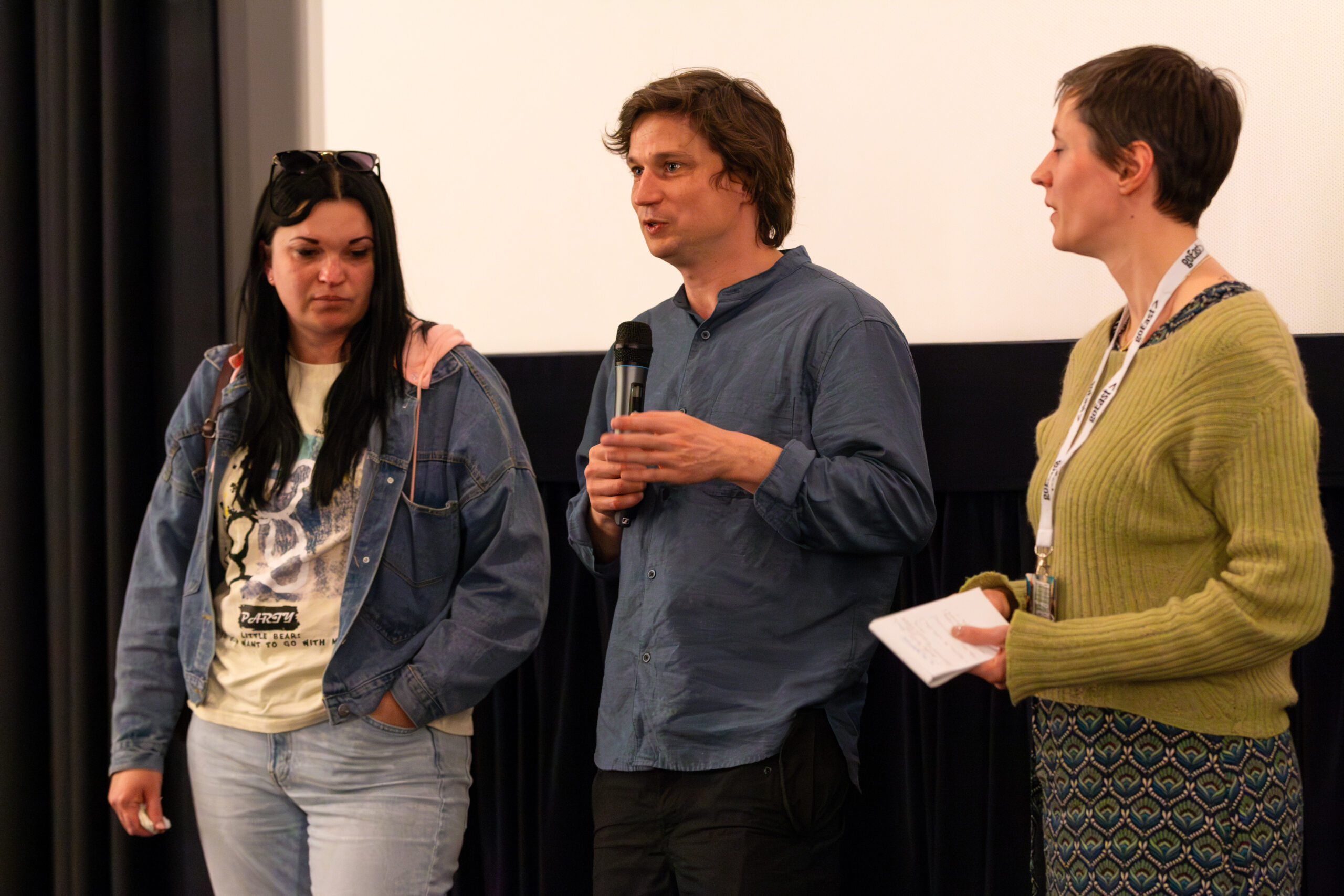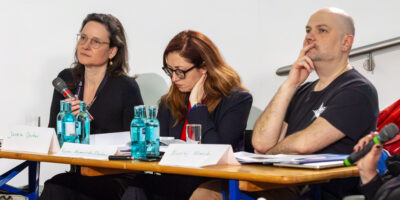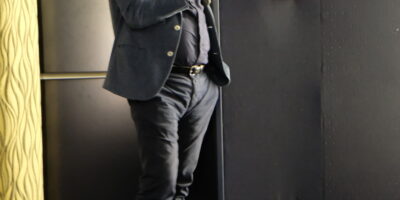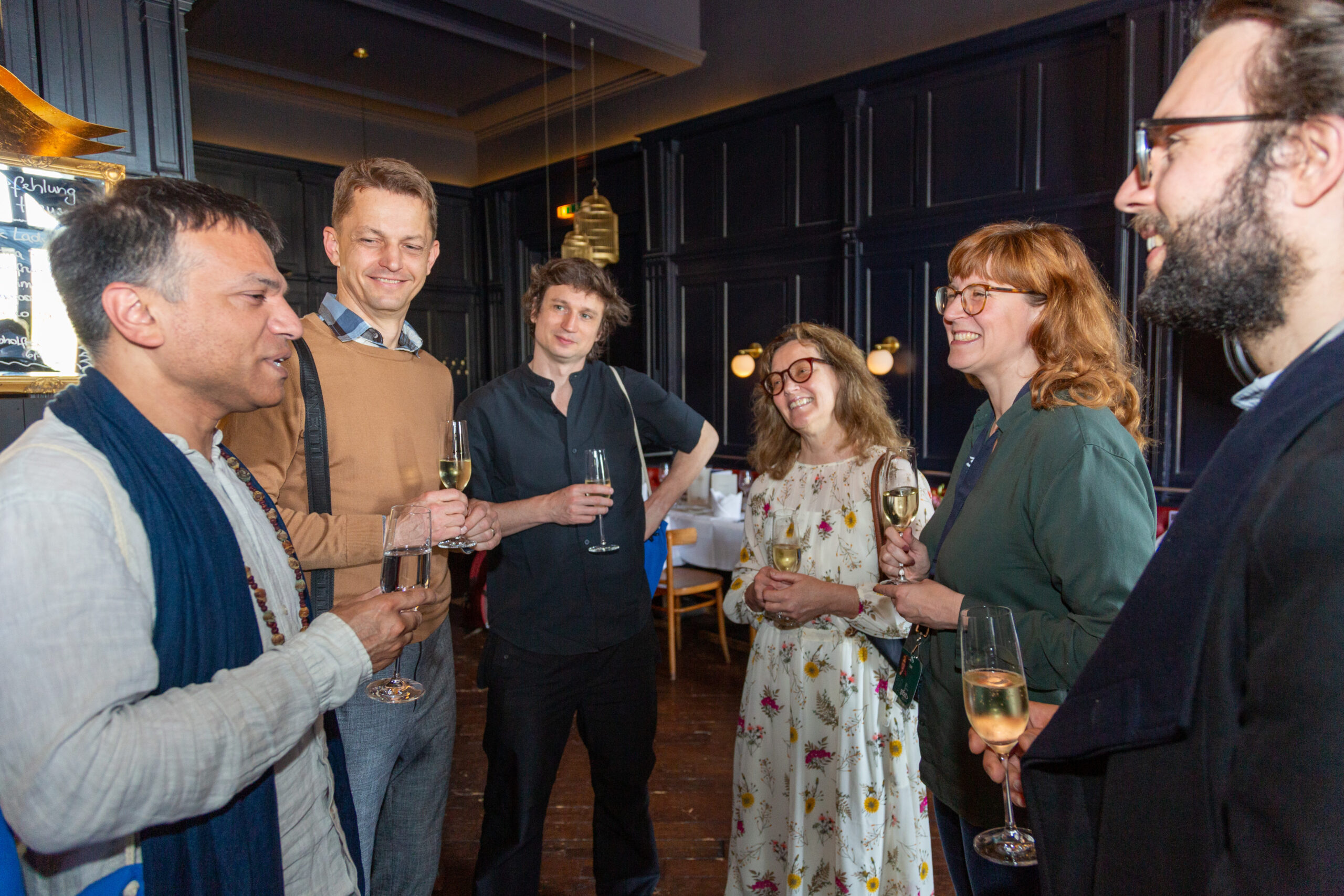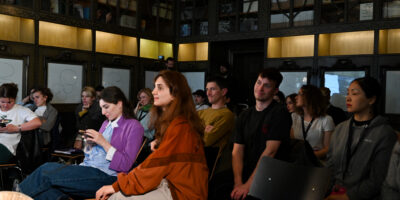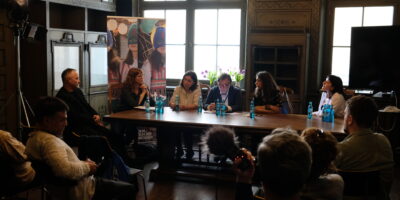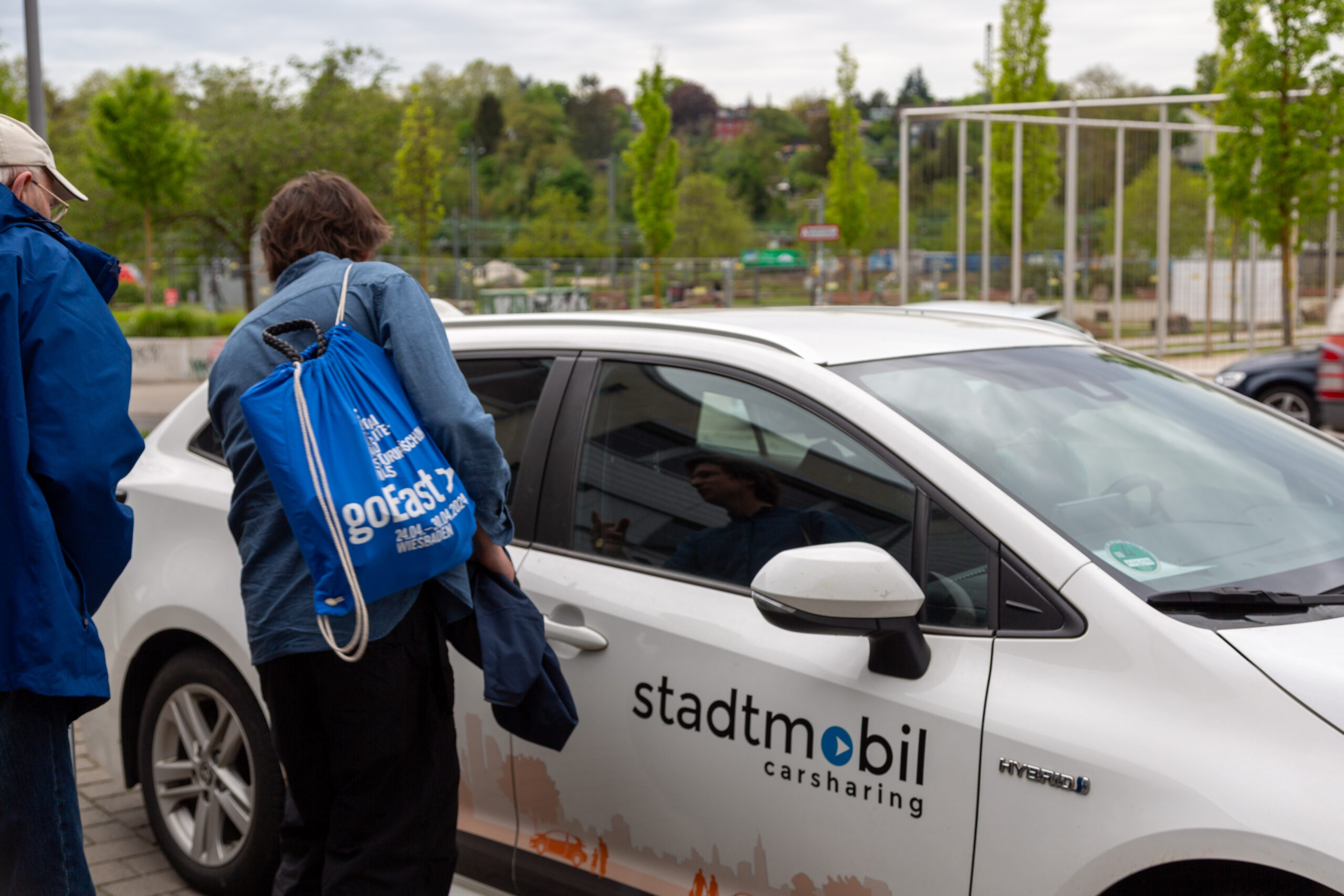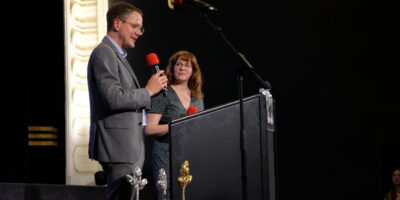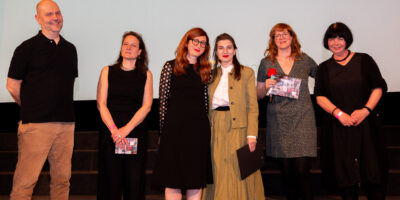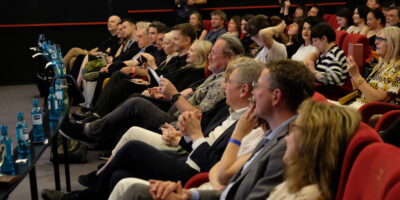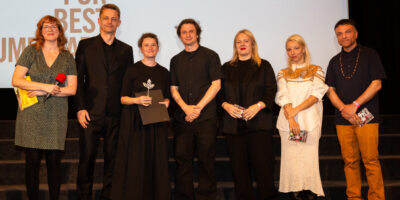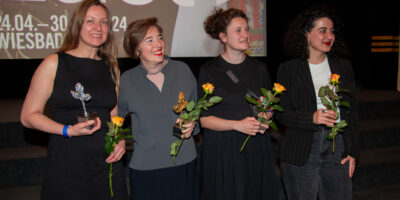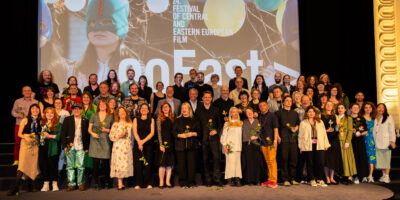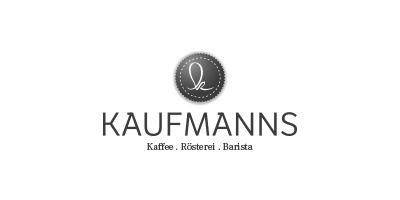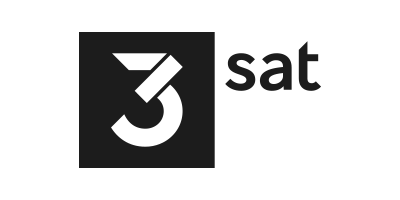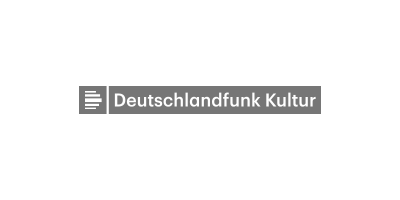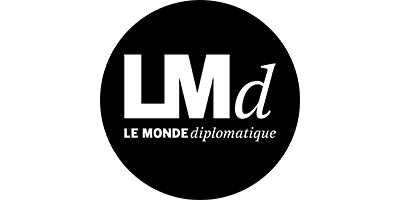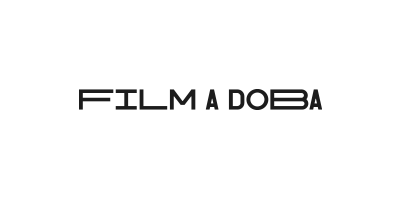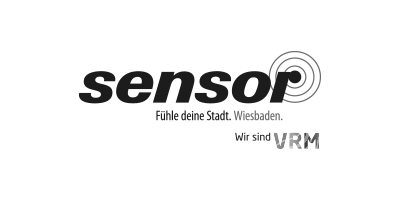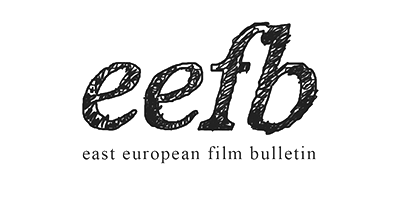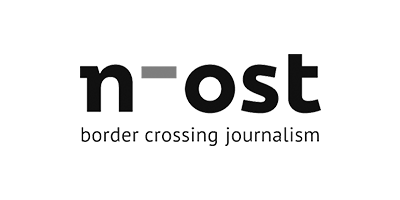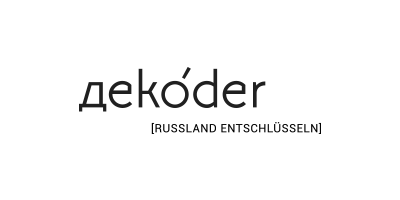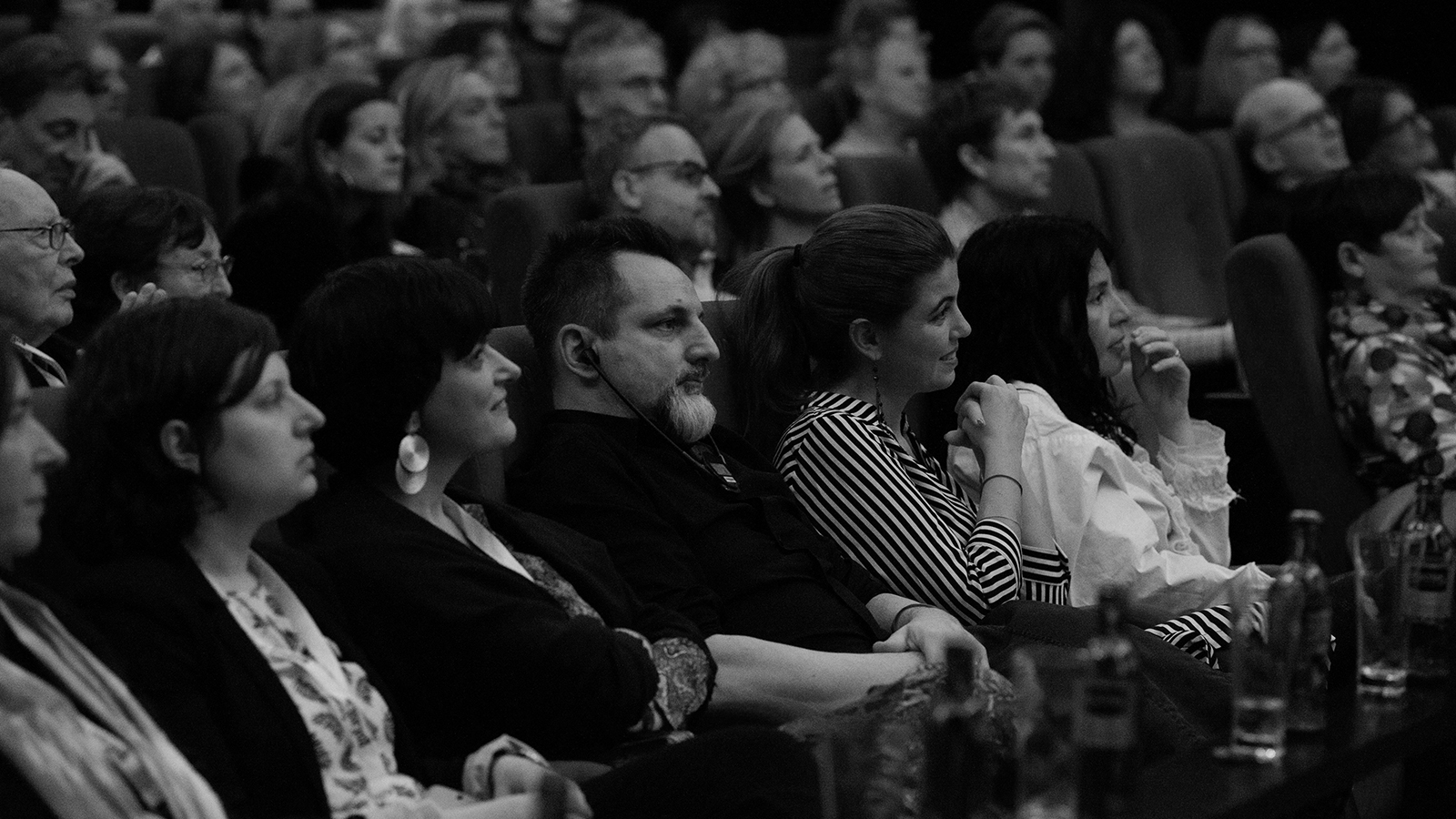
The Festival
Starting in the 1980s, DFF – Deutsches Filminstitut und Filmmuseum (then known as Deutsches Institut für Filmkunde) conceived Eastern European cinema weeks on behalf of the federal government and organised film tours focussing on the region throughout Germany. The institution took up this tradition once again with goEast – Festival of Central and Eastern European Film, which celebrated its inaugural edition in April 2001 and, with its exciting film programming, has been offering important insight into the everyday lives of our Central and Eastern European neighbours every year since. In 2017, Heleen Gerritsen took over as festival director, thus becoming the fifth woman to head the festival, following in the footsteps of Claudia Dillmann, Christine Kopf, Nadja Rademacher and Gaby Babić. Gerritsen is also responsible for the artistic direction of the festival. Bernd Neumann has served as festival patron since 2016.
Over the course of seven festival days, goEast presents the full range of Central and Eastern European filmmaking in Wiesbaden and additional locations around the Rhine-Main region, in a programme featuring current trends, new positions and film-historical rarities, always within the context of discourse regarding socio-political concerns, cinema aesthetics and film theory. Among the most significant and frequently discussed subjects here are European identity/identities and the profound processes of transformation, both historical and contemporary, occurring in the festival’s culturally and politically diverse focus region. Since the beginning of its second decade of existence, goEast has increasingly devoted itself to promoting transcultural perspectives and addressing global issues.
goEast understands itself as a forum for dialogue between East and West, but also as an agent for change and a cultural multiplicator. Panels and workshops, film series and film talks, collective projects with other cultural and societal institutions – the possibilities for creative interaction are many and varied. With virtual reality projects and 360° films as an integral part of the programme, as well as the hybrid format of the festival since 2020, which has advanced the integration of online programming, goEast is also playing a pioneering role when it comes to conceptual innovation. The festival is a platform for networking, exchange and further education. In particular up-and-coming filmmakers and children and adolescents from the region benefit from the creative and pedagogical focal points at goEast.
The programme of goEast is organised in diverse sections, each with their own respective profiles. Central here are, among others, the Competition, with its twin categories for fiction features and documentary films, the Symposium, the East-West Talent Lab, the Portrait/Homage (alternating annually), Bioscop and the goEast Specials. Each section is carefully curated, supported by festival correspondents and experts and – in the Competition – led by a selection committee. Genres and film categories are mixed in the sections. Beyond the cinema space itself, goEast offers a richly varied supporting programme, often assembled in co-operation with local and superregional partners, including Central and Eastern European cultural associations.
FESTIVAL HISTORY
After two-and-a-half years of preparation, goEast Film Festival enriched the Western European cinema scene for the first time in 2001 with its innovative approach. As the first festival director Claudia Dillmann wrote in the preface to the catalogue back then: “It is time to open ourselves up to thoughts, images, myths and stories from our neighbours to the East. To their culture. To their films.” Svetlana Sikora, who served as the festival’s artistic director from its inaugural edition until 2010, was involved in the conceptual development. The declared aim of facilitating genuine cultural dialogue and exchange – between directors and audience as well as between emerging talents from East and West – paved the way for today’s festival format. From the very beginning, goEast was met with great interest and support by the State Capital Wiesbaden and the State of Hessen. In Wiesbaden, a city rich in deep connections to Eastern Europe, the festival found a true home – in one of Germany’s most beautiful cinemas, Caligari FilmBühne. Hilmar Hoffmann assumed the role of festival patron. As early as its third festival year, goEast had already succeeded in establishing itself in the German and international cultural scene and had proven itself to be vital and sustainable, a fact attested to by a significant increase in submissions to the Competition, the first appearance of a jury representing the International Federation of Film Critics (FIPRESCI) as well as the official inclusion of the event in the festival calendar of the FIAPF.
Over the long-term history of the festival, the world has changed continually, marked by both Western and Eastern European political crises, wars and problematic EU debates. Still, through the decades, goEast has remained true to its concept. To express it in the words of Gaby Babić: “We see festival programming as a responsibility” – responsibility for a Europe with collective, humane, solidarity-based politics as part of an intensive engagement with identity, tradition, culture and future perspectives within a comprehensive programme featuring current films, scholarly supporting events, lectures and discussions – as well as friendly competition among peers: from 2019 to 2021 the RheinMain Short Film Award, the Award for Cultural Diversity and the International Film Critics’ Awards. Since the festival’s inception, goEast has honoured the best film with the “Golden Lily”. The State Capital Wiesbaden presents the Award for Best Director, endowed with 7,500 euros in prize money.
In autumn of 2017, Heleen Gerritsen took over as director of the festival (with the overlapping responsibility for its artistic direction), becoming the fifth woman to head the festival, following in the footsteps of Claudia Dillmann, Christine Kopf, Nadja Rademacher and Gaby Babić.
Bernd Neumann has served as patron of the festival since 2016.
Technology is advancing in leaps and bounds, a situation that goEast Film Festival has embraced with enthusiasm. In 2018, virtual reality works were presented for the first time, which evolved into a tradition. In the following years, VR productions were presented frequently, ultimately opening the way for an expansive exploration of digital worlds in the wake of the Covid-19 pandemic. The 21st edition of the festival took place almost entirely online under difficult circumstances. However, this served once again to demonstrate how connected the world of film culture truly is.
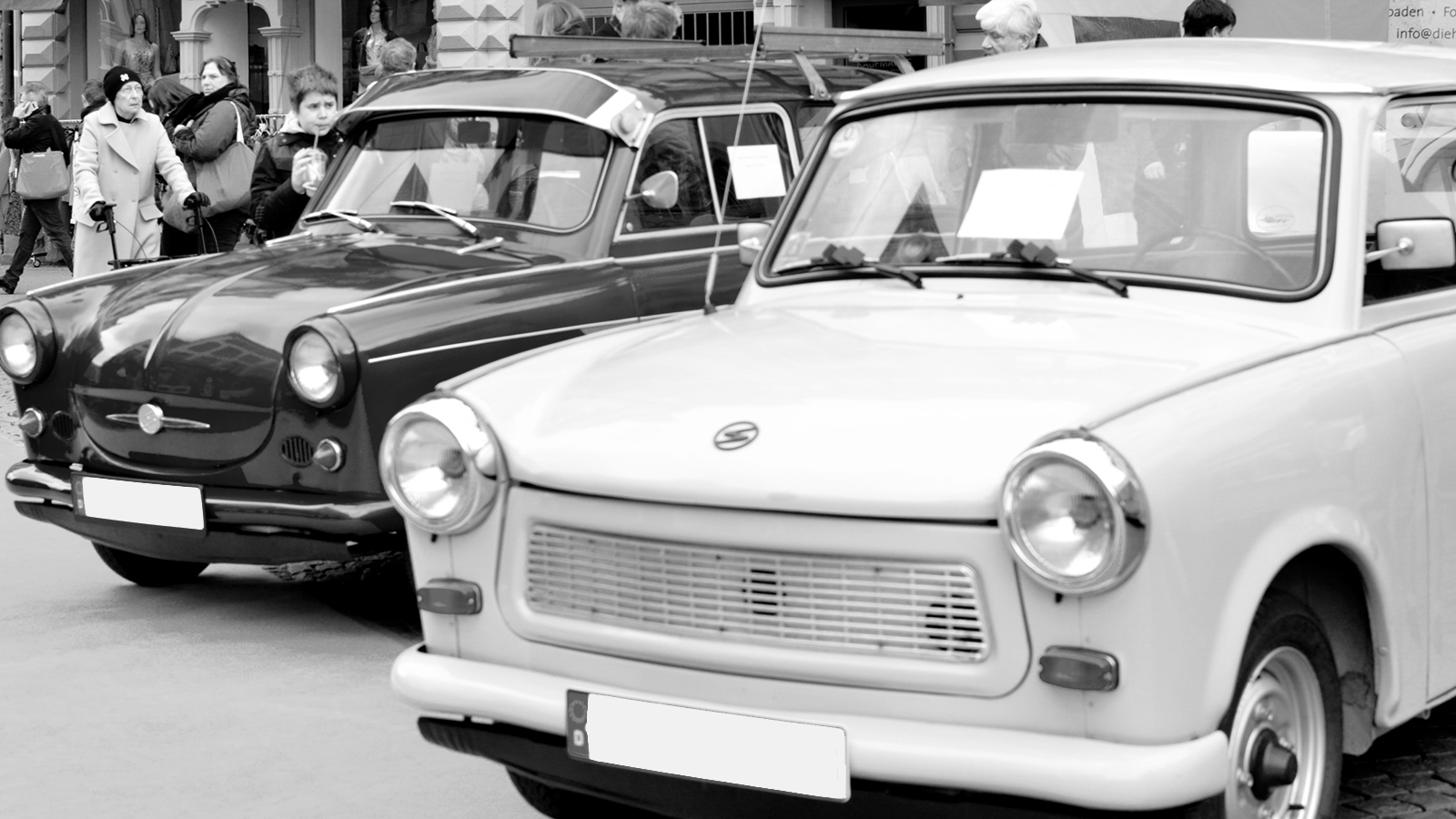
Awards & Juries
Awards
MAIN COMPETITION
- Award for Best Film (10,000 euros)
- Award of the City of Wiesbaden for Best Director (7,500 euros)
- International Film Critic’s Awards (FIPRESCI-Award)
RHEIN MAIN SHORT FILM COMPETITION
- Award for Best Short Film (2,500 euros)
EAST-WEST TALENT LAB
- Renovabis Research Grant for a film project with a focus on human rights (3,500 euros)
- Pitch the Doc-Award (endowed with 500 euros)
Juries
- International Jury – Main Competition
- FIPRESCI Jury – Main Competition
- Jury of the Rhein Main Short Film Competition
- Jury of the East-West Talent Lab
Team
HEAD OF FESTIVAL / ARTISTIC DIRECTOR
Heleen Gerritsen
Phone: +49.611.236 843-11
Mail
HEAD OF ORGANIZATION & MARKETING
Ansley Falk
Phone: +49.611.236 843-12
Mail
PROGRAMME COORDINATION
Sophie Brakemeier
Phone: +49.611.236 843-13
Mail
FESTIVAL PRODUCER
Simon Zerfaß
Phone: +49.611.236 843-10
Mail
EDITORIAL DEPARTMENT
Stefan Schuchort
Phone: +49.611.236 843-18
Mail
Jobs
VOLUNTEERING AT goEAST
The 25th anniversary edition of goEast is taking place from the 23rd to 29th of April 2025 in Wiesbaden.
For that we are once again looking for film enthusiastic, culture interested and motivated volunteers. During the Festival week you will be supporting our team and helping to make the festival possible!
Right before, during and after the festival we need your support in different areas. The best-case scenario would be if you were able to help for 20 hours in the time span from the 22nd to 30th of April. The Shifts vary in the different areas (mostly between 4-8 hours), so that you will have enough time on your days off to enjoy the diverse program of the festival.
Besides a warm working environment, a fantastic team and a look behind the production of a film festival, we offer the following benefits:
- A personalized Festivalpass, that grants you free entry to almost every event and film-screening
- Food, Drinks and Merchandising articles
- Contact to international filmmakers and artists
- Films, Parties, film talks, symposium and much more
- Working experience in film festival/culture
We are looking for support in Wiesbaden in the following areas:
MARKETING ACTIVITIES // Support for our full-time team (early/mid-April 2025)
A few weeks before the festival, we will receive the freshly printed program brochures. To engage potential audiences and ensure that our film screenings and events are well-attended, these brochures need to be distributed. You can help us with route planning for the distribution activities and with distributing them in Wiesbaden, Frankfurt, Mainz, and Darmstadt. Maybe you also know suitable spots that our target audiences frequent.
SET-UP & TEAR-DOWN // At our locations (22. – 23.04 & 29. – 30.04.2025)
It’s nice if you can carry a big wardrobe all by yourself, but this skill is not required with us. For setting up and tearing down our festival locations, we need many helping hands to move small items from A to B, decorate, or pack guest bags.
DRIVER (22.04 – 30.04.2025)
We offer our festival guests the best possible comfort after their often long journey. As a driver, you will shuttle our international film guests between the hotel, airport, train station, or location. To drive for us, we require a Class B driver’s license, sufficient driving experience, and a relaxed, courteous driving style. A cooperation partner provides the cars, and you are insured through them in case of damage. If you are interested in this role, please let us know if you can only drive automatic/manual transmission and whether you are comfortable with a specific vehicle size (we drive station wagons and 9-seaters). You do not need a passenger transport license.
GASTRO // Support for the opening (23.04.2025), the party (26.04.2025), the festival bar (24. –28.04.2025), and beverage distribution during lunch (24. –29.04.2025)
On the opening day of goEast, we are initially at the Caligari FilmBühne in the late afternoon. Here, we need help with tasks like carrying light items, slicing and skewering cucumbers, pouring vodka, and holding light trays.
For the party, we prepare the space (decorations, drinks), later run the bar (serving drinks, mixing simple long drinks, operating the dishwasher), and do some cleaning. In the evening, festival guests will gather at our festival bar, where the bar also needs to be staffed.
During lunch, we distribute free bottled drinks to our guests. “Payment” is made by exchanging a drink voucher.
INFO COUNTER // Support for our full-time team (23. –30.04.2025)
The Info Counter at our festival center is the first point of contact for festival guests. Here, filmmakers and industry visitors receive their festival badges, festival bags, information about the program and locations, their accreditations, and more. You don’t need to know the festival inside and out – that’s what our full-time team at the Info Counter is for. You will help, for example, with issuing badges or bags, or guiding guests through the festival center. The Info Counter will have tasks to do in several shifts between 9:30 AM and 6:30 PM.
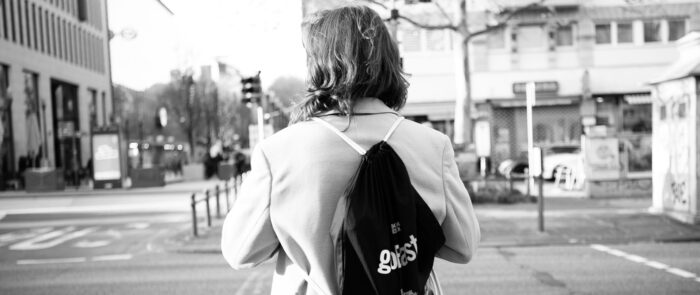
Guest Service // Supporting the full-time teams (22.04. – 30.04.2025)
In guest services, you are often the first point of contact for our guests here on-site and contribute to a successful stay: whether waiting at the meeting point at the airport after landing, accompanying guests on the shuttle to the accommodation, or checking them in at the hotel. goEast has many international guests, so good English skills are essential. Knowledge of Central and Eastern European languages can be very helpful, but is not a requirement. In this role, you are welcome to take the train to the airport on your own. Once you’ve found the guests, our drivers will take you and the guests to the hotel in Wiesbaden, or you may stay at the airport for the next guests.
Event Service // various Tasks (23. – 30.04.2025)
A film festival is dynamic, and a variety of tasks arise. On one hand, there are the regular duties around our film screenings, panel discussions, or film talks: You check the cinema tickets right before the screening or help with setting up or clearing lecture rooms. On the other hand, there are unexpected situations: someone assigned to the entrance has fallen ill, and we need a replacement, or an item must be quickly delivered to a specific location. For this, we need floaters who can switch from standby to active mode. It’s important that we can reach you at any time on your silent phone so that you can take care of a small task for us. Generally, this is possible on foot; for longer distances, we would, of course, arrange transport.
EAST-WEST TALENT LAB // various Tasks (24. – 30.04.2025)
The East-West Talent Lab is the up-and-coming talent program of goEast. The participants gather for various small events to exchange ideas, continue their education, or network. There is already someone in the full-time team who takes care of the participants and the events. However, sometimes things happen at two different locations at the same time, or the preparation and follow-up of the locations are easier with two people. If you are interested in this area, you are also welcome to help a few days before the festival starts, whether it’s printing documents or packing information bags. It would be desirable if you could support a longer period of the program. This would certainly make the work easier for both you and our assistant as a well-coordinated team. The events often take place from morning until afternoon, so you will have plenty of time in the evenings to attend the film screenings.
Please register as a volunteer through our festival software Eventival – here you can specify your preferred areas and time slots. The more flexible you are, the more likely we can accommodate you. If you already have an Eventival account from previous years, you can simply log in with your credentials. If you don’t have an account yet, you can create one in just a few minutes. If you have any questions or if something isn’t working (e.g. forgot your password), please contact us via email at: goEast-orga@dff.film.
Gallery
goEast Festival Impressions 2024
At the end of April for the 24th time goEast transformed the Hessian capital Wiesbaden into one of the most important international venues for cinema from Central and Eastern Europe.
Check out the highlights of the 24th festival edition in our video documentary.
Video Documentary – Students of the University of Gdańsk (Karol Milewczyk, Adriana Frankowska & Weronika Hass)
Partners
Funders
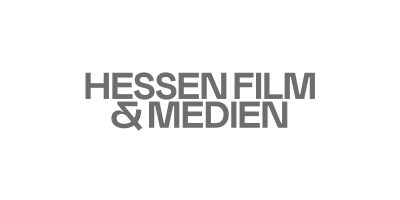
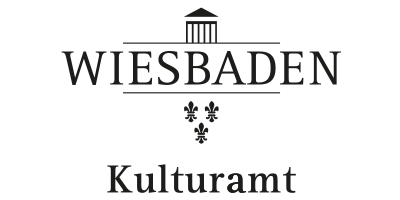
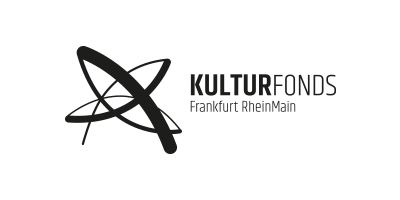
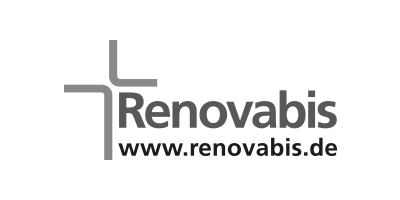

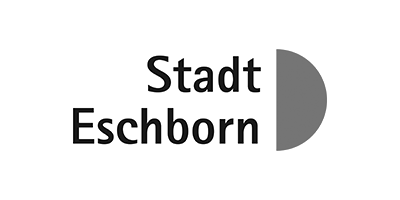
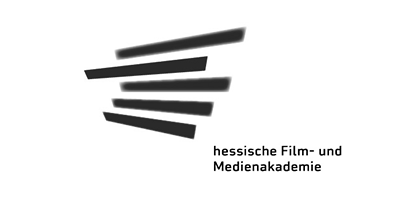
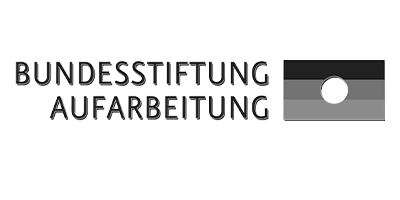
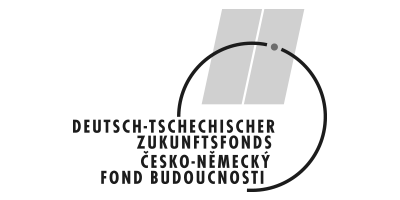
Sponsors
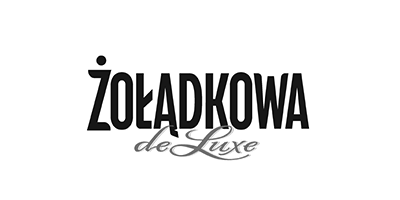
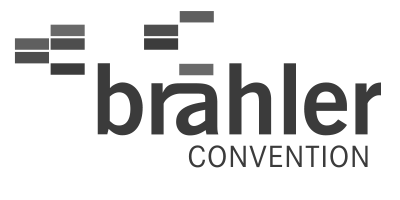
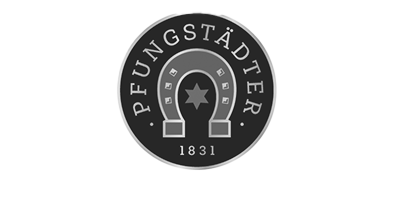
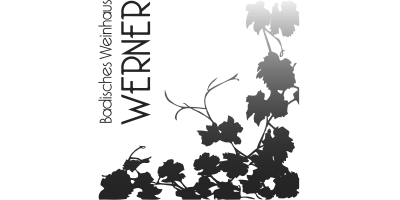
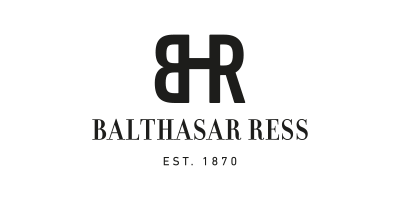
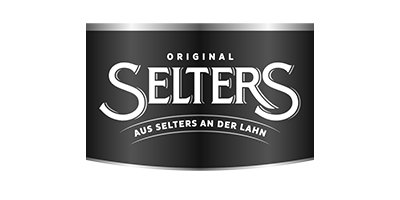
Media partners


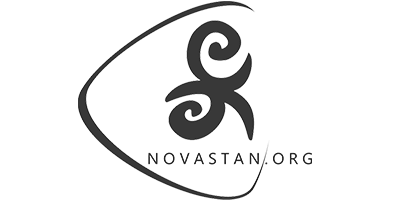

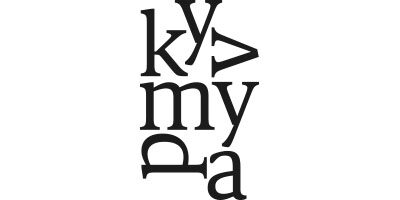

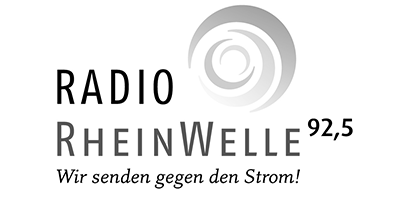
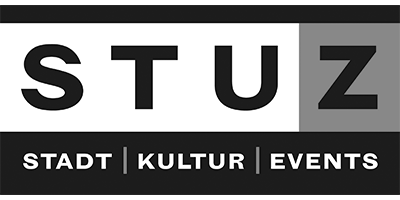
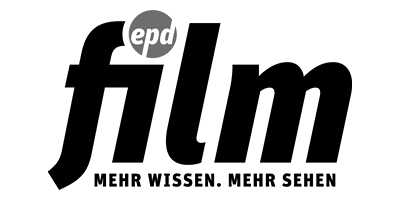

Partners

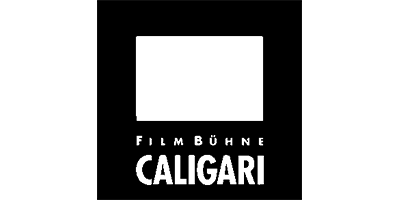

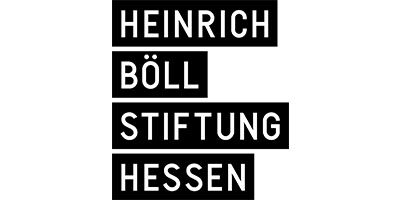
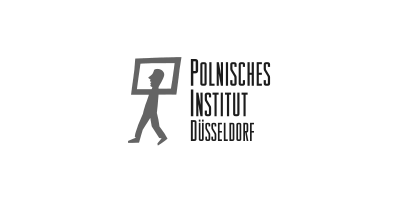
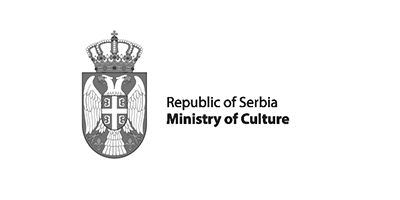
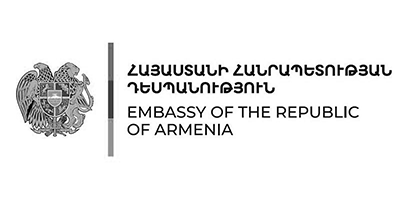
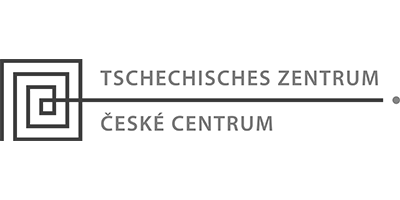
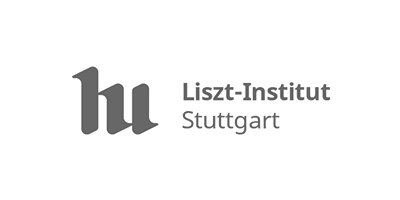
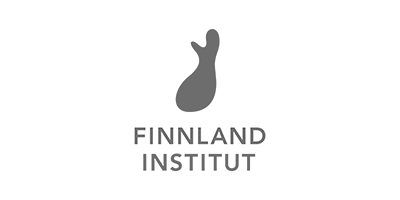
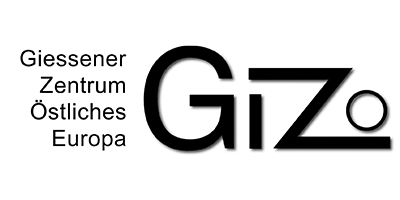
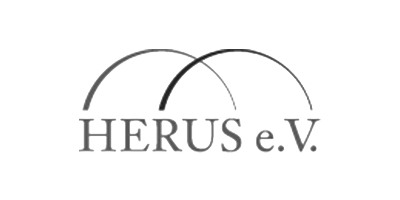

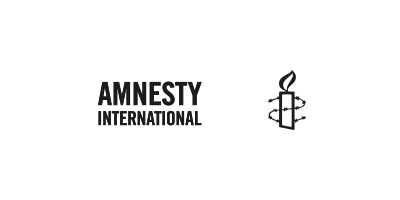
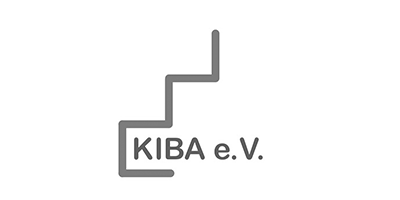
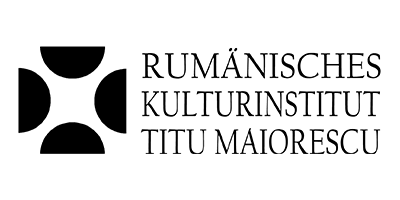
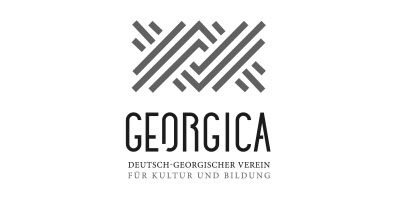


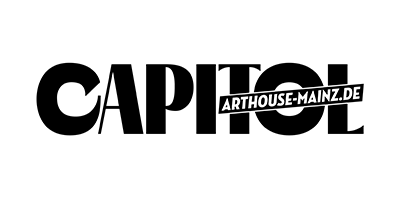
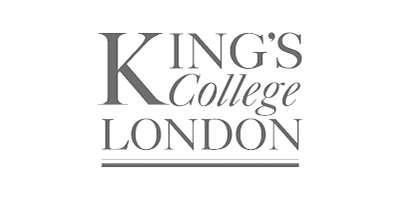
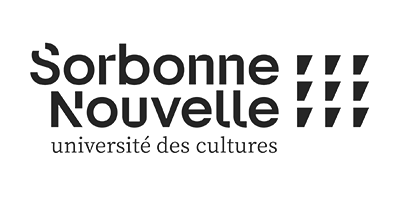
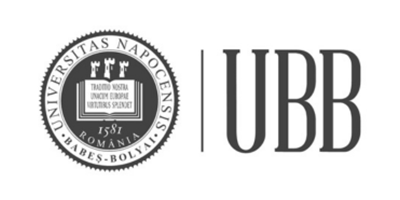

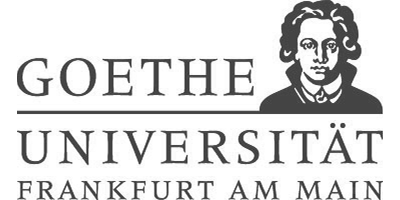
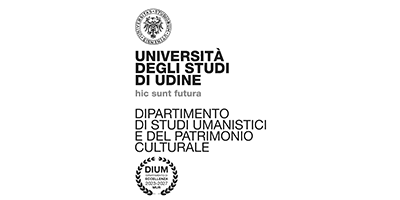
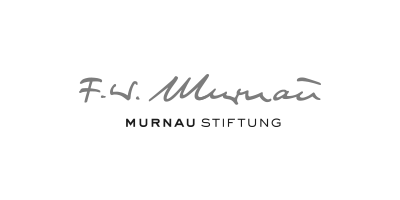
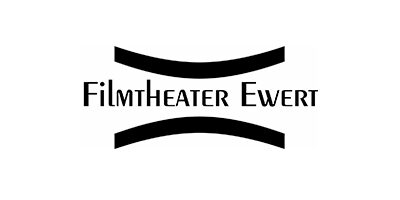

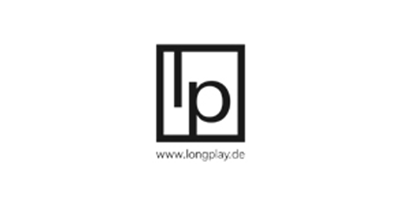
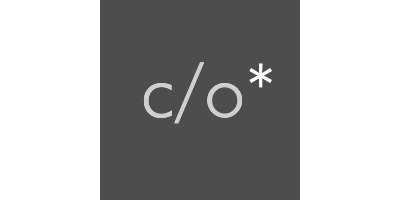
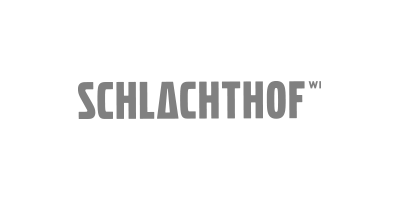


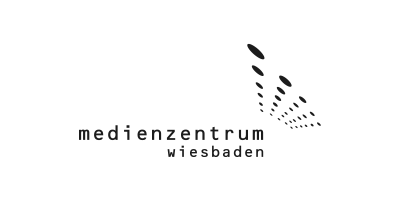
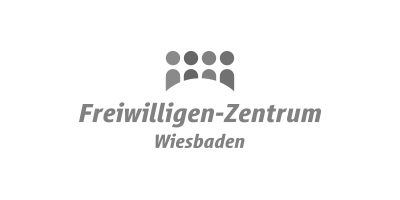


Support
There are several ways to support goEast – Festival of Central and Eastern European Film. Here, we would like to introduce you to some of these ways. If you are interested, we kindly ask you to get in touch the festival team in order to assure the best solution for your individual ideas and possibilities.
FOR INDIVIDUALS
Are you passionate about Central and Eastern European cinema or their cultures? We look forward to your commitment, for example as a volunteer in the run-up to the festival or during the festival week in Wiesbaden and Frankfurt. As a volunteer you can gain insight into numerous areas of everyday festival life as well as actively support our team. Areas of support include the distribution of advertising materials, admission control in the festival cinemas or accompanying our film guests.
Would you like to support the artistic work of the festival financially? Then we look forward to your transfer to the following account:
Account holder: DFF – Deutsches Filminstitut & Filmmuseum e.V.
IBAN: DE23 5109 0000 0000 8917 11
BIC/SWIFT: WIBADE5WXXX
Wiesbaden Volksbank
Purpose: SURNAME, FIRST NAME “Donation goEast”
Please email us your name and address in order for us to send you a donation receipt.
Thank you for your donation!
FOR COMPANIES
Would you like to place your company in the vicinity of the festival and support cultural projects? Then join our goEast sponsors! The events in Wiesbaden, Frankfurt and several more in the Rhine-Main area attract more than 12,000 visitors each year. From in-kind sponsorship, a film patronage that enables us to invite film guests to Wiesbaden, to premium sponsorship, we are happy to offer you a package that meets your needs. Please contact our festival team.
The festival can also accept and certify company donations as part of the DFF, please contact us!

